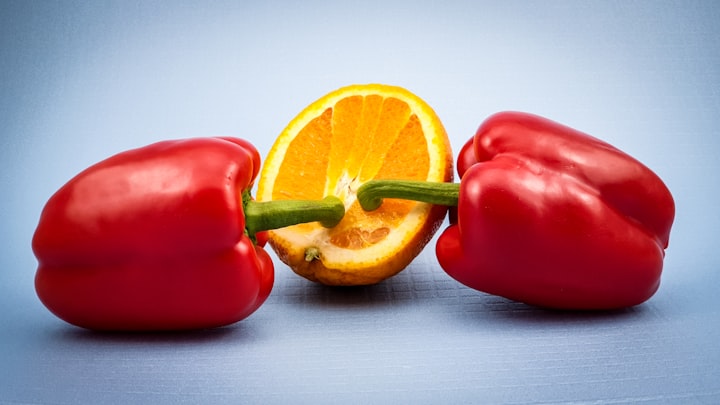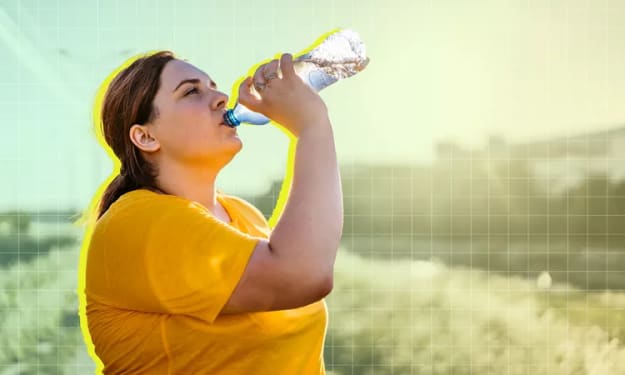Things you don't know about fruits and vegetables
Just some facts about fruits and vegetables

Things you don't know about fruits and vegetables
The nutritional benefits of fruits and vegetables have been well documented, but there are many things that many people don't know about fruits and vegetables.
Here are some lesser-known facts about fruits and vegetables that you may not have known.
1. They are packed with fiber.
Fruits and vegetables are an important source of fiber. They contain a range of fibers, but soluble fiber is the one that's most talked about.
Soluble fiber helps to make foods harder for our intestines to break down. This makes it easier for us to feel full and reduce hunger cravings.
Fruits and vegetables also contain several vitamins and minerals, including vitamin C, vitamin K, potassium, and iron.
2. They have other health benefits.
Fruits and vegetables are nutritious, but there are many other health benefits associated with eating them.
Benefits that fruits and vegetables offer include:
Reducing the risk of heart disease
Lowering the risk of stroke
Lowering the risk of type 2 diabetes
Reducing the risk of some types of cancer
Reducing the risk of some types of arthritis
Lowering the risk of osteoporosis
Lengthening life
Boosting immune health
Research suggests that eating a wide variety of fruits and vegetables may improve the immune system.
It has also been suggested that certain spices and herbs, such as:
Garlic
Hot peppers
Shallots
Basil
Cinnamon
Nutmeg
Dietary fiber can also boost gut health, which can support a good balance of bacteria and fungi in the intestine.
Increasing fiber intake can help to reduce symptoms of constipation, and will help to regulate bowel movements.
Adding fiber to your diet with fruits and vegetables will also reduce the risk of constipation.
Protecting skin
Some fruits and vegetables contain nutrients, such as zinc, vitamin C, and vitamin A, that may help to protect the skin from the damaging effects of UV light.
A 2015 study examined a variety of foods, and found that:
Citrus fruits can protect the skin from UV light
Can protect the skin from UV light papayas contain vitamin C
Containing vitamin C blueberries can protect the skin from UV light
Can protect the skin from UV light carrots contain vitamin A
They also found that green vegetables contained beta-carotene, which may help to protect the skin from UV light.
3. They may help to prevent cancer.
People have been eating fruits and vegetables for millennia, so it is not surprising that they may have some protective qualities when it comes to cancer.
Fruits and vegetables contain phytochemicals that may help to prevent cancer. Phytochemicals are beneficial plant chemicals that protect the body from potential health threats, such as cancer.
4. Fruits and vegetables may lower the risk of heart disease.
Fruits and vegetables contain antioxidants, which can help reduce the risk of heart disease. Antioxidants are powerful compounds that can help to neutralize damaging free radicals.
Researchers have found evidence that the following fruits and vegetables may help reduce the risk of heart disease:
Fruit and vegetables with a high content of potassium
Sugary fruits, such as apples and pears
Tropical fruits, such as bananas, mangoes, and avocados
The American Heart Association (AHA) list several fruits and vegetables that may reduce the risk of heart disease, including:
Yams
Tomatoes
Celery
Cabbage
Apples
Grapes
Olives
Broccoli
Yellow squash
Strawberries
The following vegetables may help reduce the risk of heart disease:
Carrots
Green peas
Peas
Cauliflower
Asparagus
Cherries may also be beneficial to heart health, because they contain flavonoids.
5. They may help to treat high cholesterol.
The AHA lists several fruits and vegetables that may help to lower cholesterol. The list includes:
Apple
Bananas
Cherries
Olives
Potatoes
Garlic
Peas
Parsnips
Peaches
Zucchini
6. They may help reduce the risk of obesity.
Eating fruits and vegetables may help to lower the risk of obesity. Eating fruits and vegetables may help to lower the risk of obesity.
Eating fruits and vegetables is associated with a reduced risk of obesity, and it may be the case that consuming these foods helps to decrease weight.
Eating fruits and vegetables is also linked to a lower risk of metabolic syndrome, which is a cluster of risk factors for heart disease.
People who eat fruits and vegetables regularly are also more likely to keep a healthy weight.






Comments
There are no comments for this story
Be the first to respond and start the conversation.